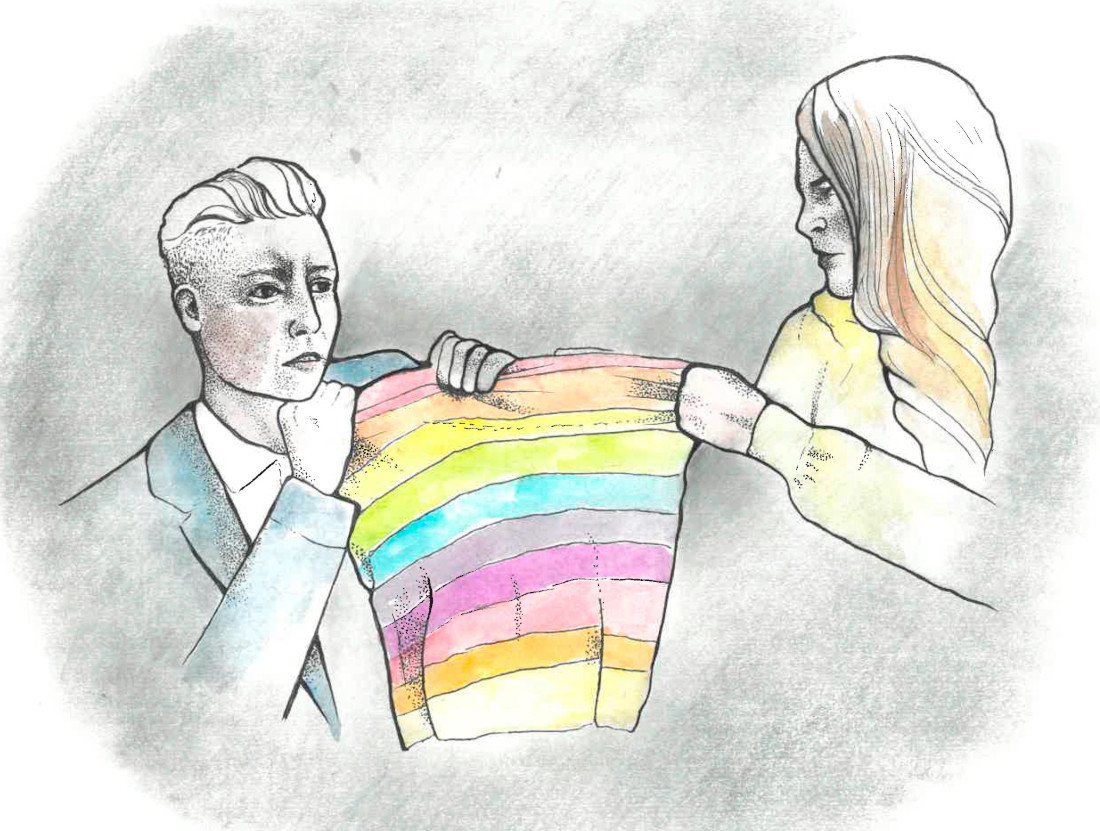Shattered images
Conversations about linked identities, acceptance, erasure
The invitation arrives misaddressed. For at least the third time in as many years, a relative assumes I adopted my partner’s name when we married.
I shrug off the slight and tuck the enclosed baby-shower notice into a drawer. Even when people know my surname, it’s often misspelled. Non-francophone gate attendants have rearranged its six letters and called out dozens of possible pronunciations over airport speakers.
For simplicity’s sake, I have my students call me “Miss D” if they can’t roll the “r” in Doiron. The athletes I coach know I prefer “yes sir” over “ma’am” when they jokingly respond to my instructions during practice.
This acknowledgment is a brief reprieve from the assumptions most people make when they address me. My partner is a professional athlete, and almost every teammate, executive and fan assumes I carry the last name stitched on the back of his jersey. When I’m interviewed, journalists confirm my surname but rarely my pronouns.
Almost two years ago, I quietly added “they/them” pronouns to the “she/her” listed in my social-media bios. It was the safest way I knew to acknowledge my evolving identity, away from the prying eyes of my more conservative relatives and colleagues.
“For me, coming out as a queer woman and a rape survivor have been inextricably linked,” V.L. Seek writes in an essay for Not That Bad. “The way I relied on easy lies to avoid my own trauma was the same way I justified staying closeted. It was always ‘later’ or ‘someday’ or ‘no one’s business at all.’”
Similarly, once I began opening up about my experiences as a rape survivor, I felt compared to share other, buried parts of myself. I started writing, posting, speaking about my abuse, my trauma, my sexual orientation and, eventually, my gender identity.
“I practiced saying the words in front of myself, hoping to see a more honest version staring back at me,” Seek explains. “Queer. Lesbian. Dyke. The words were foreign, but they came from a mouth that understood them all the same. They felt wrong to say aloud, but my tongue knew the shape to make, and I heard my own truth pouring from a body that had spent years convincing herself otherwise.”
These revelations were freeing but isolating. Pouring my truth out on a screen to a curated readership was vastly different from actually speaking the words aloud to family members, colleagues, friends.
In many ways, these truths rended the canvases of portraits loved ones had painted of me over decades. No longer was I unviolated, flawless, whole. No longer was I entirely a woman. Few people accepted my more complete identity. Many thanked me for opening up then all but erased our conversations.
Their reluctance likely stems from conservatism, generational divides, an inability to understand. “I think what people worry about is (that) the world feels unstable,” author Jennifer Finney Boylan says in a recent episode of The Argument. “In some ways, it (speaks) to the bigger resistance to the idea of change of any kind.”
“I think gender is the one thing that, if you’ve never thought about it and have never had to think about it, you want to continue to live in a world where you never have to think about it.”
It’s difficult enough inhabiting a world where people close to me refuse to accept my legal, chosen name. It’s eviscerating when they ignore, erase, belittle the parts of my identity I can finally, proudly accept.
A former sports broadcaster, Danielle Doiron is now a writer, editor and educator. Find them in Winnipeg, Philadelphia, Fargo and, occasionally, on the airwaves.
Published in Volume 77, Number 09 of The Uniter (November 10, 2022)







